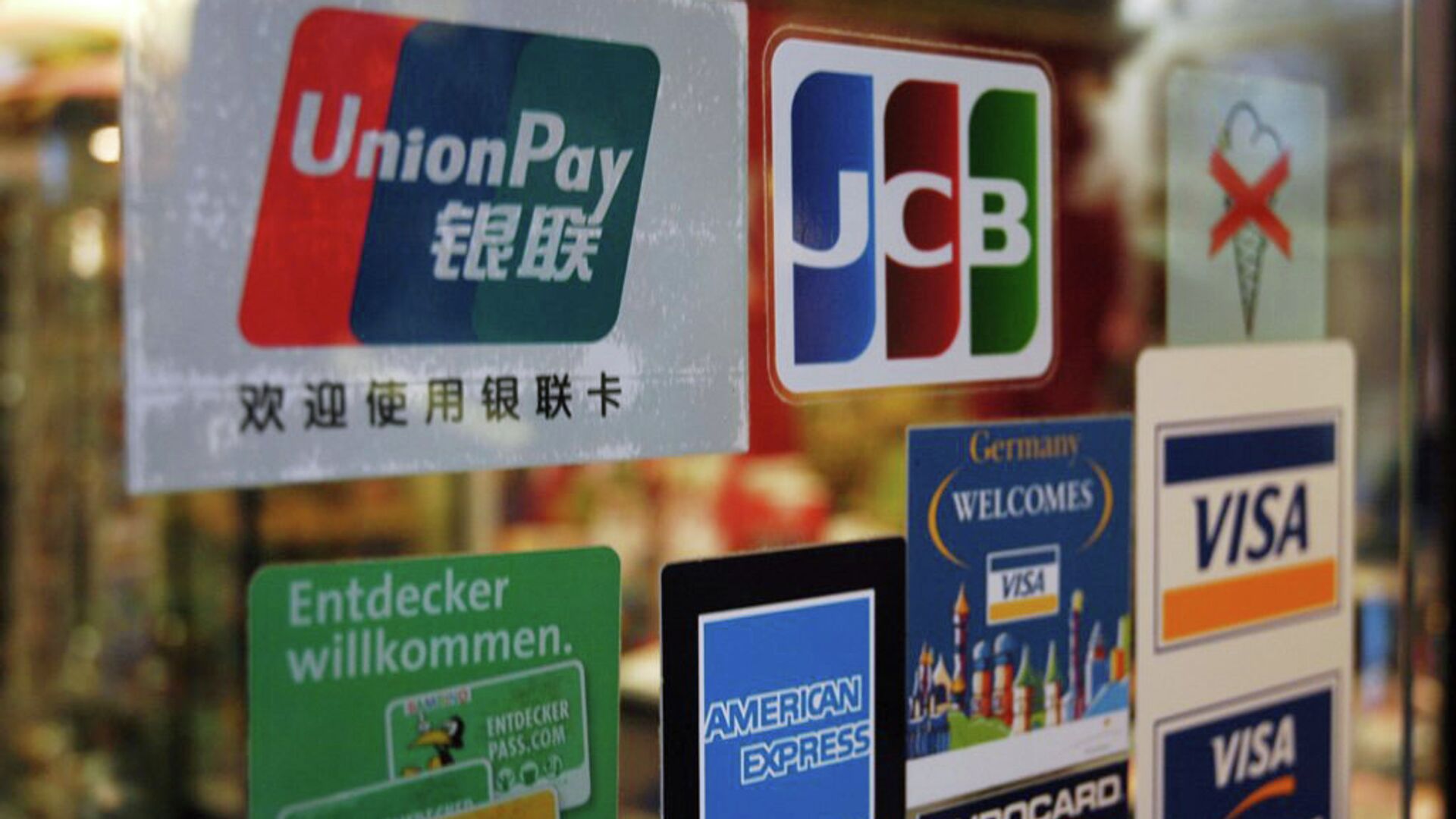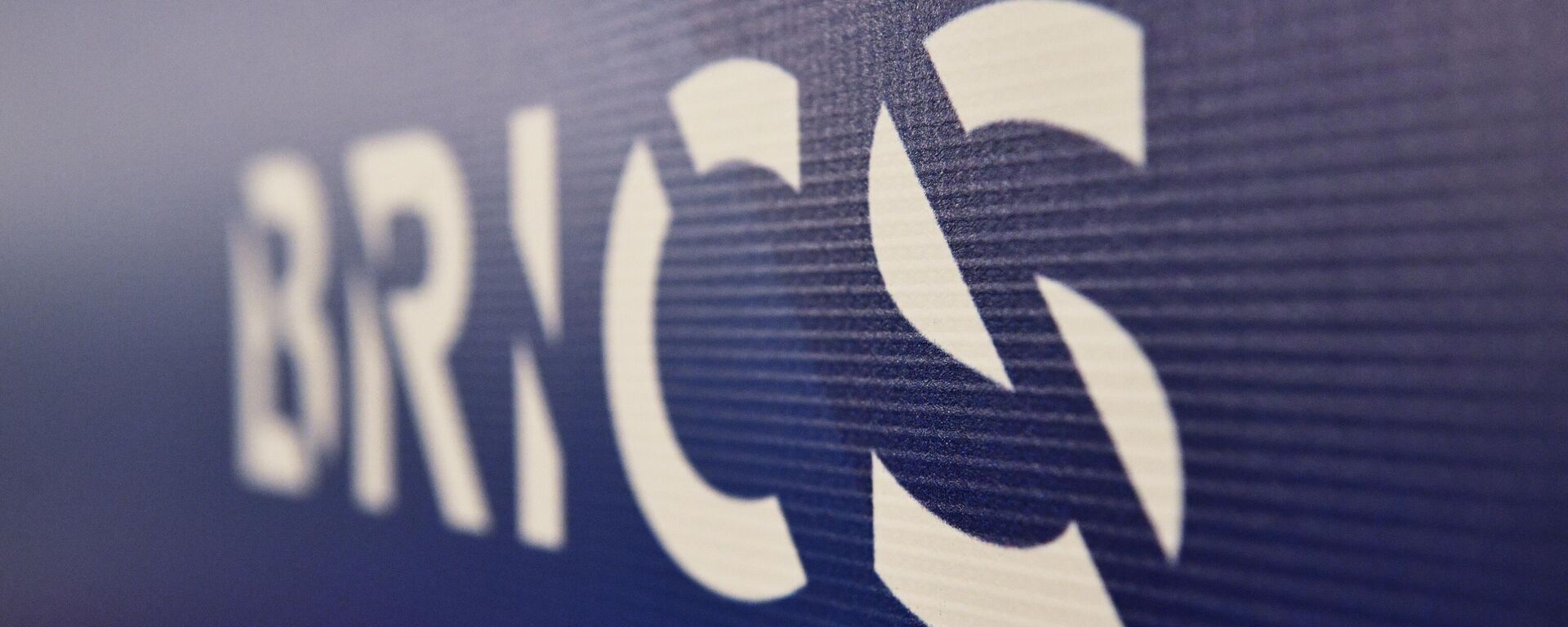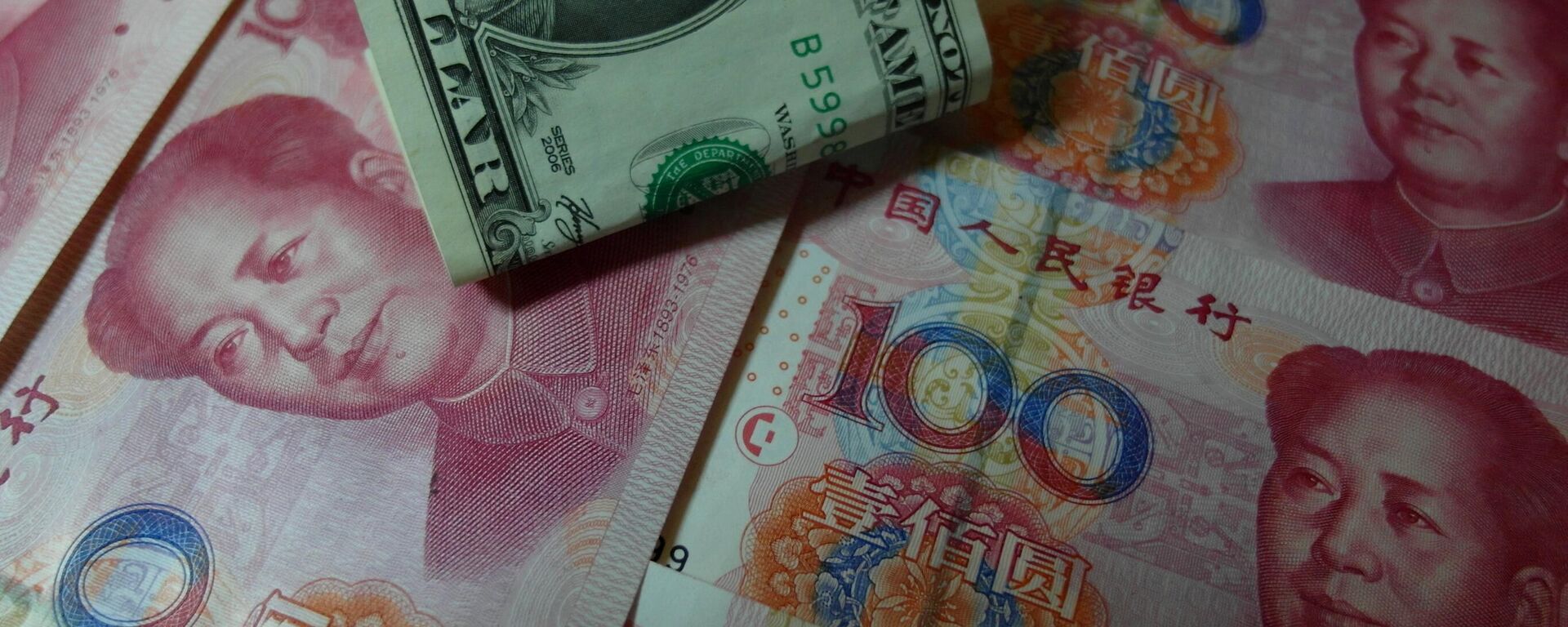https://sputnikglobe.com/20230528/chinas-unionpay-overtakes-visa-in-debit-transactions-as-global-financial-realignment-continues-1110753409.html
China’s UnionPay Overtakes Visa in Debit Transactions as Global Financial Realignment Continues
China’s UnionPay Overtakes Visa in Debit Transactions as Global Financial Realignment Continues
Sputnik International
Launched in 2002, the Chinese state-owned bank card and financial services company has sprouted into a major global payments system, with its cards accepted in over 180 nations and jurisdictions around the world, and transactions measured in the hundreds of billions of dollars annually.
2023-05-28T17:09+0000
2023-05-28T17:09+0000
2023-05-28T18:37+0000
economy
china
unionpay
mastercard
visa
mir
payment
payment system
bank payment
payment service
https://cdn1.img.sputnikglobe.com/img/19203/93/192039340_0:53:1025:629_1920x0_80_0_0_1e9cad29bfe73ad232756a31ce5abe9a.jpg
China’s UnionPay has edged out Visa to become the number one debit card in the world, accounting for $40.03 of every $100 in transactions (compared to $38.78 for Visa) in 2022, according to new figures by credit and debit card industry monitor Nilson Report.UnionPay debit card payments reached $160 billion last year, compared to $155 billion for Visa and $85 billion for MasterCard. The big two US giants outranked the Chinese bank card issuer in credit card transactions, accounting for $87 billion and $65 billion, respectively, compared with $53 billion for UnionPay. Credit cards are more tightly regulated in China – UnionPay’s main market, than they are in the US. Visa’s lead on credit cards gave it a larger overall market share in credit and debit cards of 39 percent compared to UnionPay’s 34 percent.The new figures on debit card transactions flip the script on the situation just a year ago, when Visa accounted for over 39.5 percent of all transactions, compared with 38.68 percent for UnionPay.The figures are good news, signaling the growing popularity of alternatives to Western payment systems, which have shown repeatedly that they can be pressed into service as a tool of pressure against nations which don’t prostrate themselves to the US-led "international rules-based global order." As a case in point, Visa and MasterCard ended support for cards issued by Russian banks in 2022, with many consumers shifting to Mir, the Russian national payment system, and to UnionPay, which has enjoyed growing popularity in Russia despite Western threats of secondary sanctions. While some UnionPay cards have stopped working abroad due to these restrictions, those issued by about a half-dozen Russian banks continue to operate as normal.UnionPay has plenty of room for growth in the international market, where it accounts for less than five percent of the total market share when excluding Chinese customers and the Asian nation’s massive market. UnionPay’s international division issued 20 million credit and debit cards in 2022 alone, and over 200 million since its creation in 2012. The cards work in 181 different countries and jurisdictions, including 78 countries where local banks can issue UnionPay cards. The payment system is currently accepted by over 38 million merchants around the world, with acceptance rates reaching over 95 percent in the Asia-Pacific countries, including Singapore, Malaysia, Thailand, and the Philippines, and 80 percent in Europe and North America.
https://sputnikglobe.com/20230528/saudi-arabia-in-talks-to-join-brics-bank-to-enhance-funding-options-1110651647.html
https://sputnikglobe.com/20230523/vtb-chairman-yuan-to-replace-dollar-as-main-reserve-currency-in-future-1110534045.html
china
Sputnik International
feedback@sputniknews.com
+74956456601
MIA „Rossiya Segodnya“
2023
News
en_EN
Sputnik International
feedback@sputniknews.com
+74956456601
MIA „Rossiya Segodnya“
Sputnik International
feedback@sputniknews.com
+74956456601
MIA „Rossiya Segodnya“
debit card, credit card, visa, mastercard, unionpay, realignment
debit card, credit card, visa, mastercard, unionpay, realignment
China’s UnionPay Overtakes Visa in Debit Transactions as Global Financial Realignment Continues
17:09 GMT 28.05.2023 (Updated: 18:37 GMT 28.05.2023) Launched in 2002, the Chinese state-owned bank card and financial services company has sprouted into a major global payments system, with its cards accepted in over 180 nations and jurisdictions around the world, and transactions measured in the hundreds of billions of dollars annually.
China’s UnionPay has edged out Visa to become the number one debit card in the world, accounting for $40.03 of every $100 in transactions (compared to $38.78 for Visa) in 2022, according to
new figures by credit and debit card industry monitor Nilson Report.
UnionPay debit card payments reached $160 billion last year, compared to $155 billion for Visa and $85 billion for MasterCard. The big two US giants outranked the Chinese bank card issuer in credit card transactions, accounting for $87 billion and $65 billion, respectively, compared with $53 billion for UnionPay. Credit cards are
more tightly regulated in China – UnionPay’s main market, than they are in the US. Visa’s lead on credit cards gave it a larger overall market share in credit and debit cards of 39 percent compared to UnionPay’s 34 percent.
The new figures on debit card transactions flip the script on the situation just a year ago, when Visa accounted for over 39.5 percent of all transactions, compared with 38.68 percent for UnionPay.
The figures are good news, signaling the growing popularity of alternatives to Western payment systems, which have shown repeatedly that they can be pressed into service as a tool of pressure against nations which don’t prostrate themselves to the US-led "international rules-based global order." As a case in point, Visa and MasterCard ended support for cards issued by Russian banks in 2022, with many consumers shifting to Mir, the Russian national payment system, and to UnionPay, which has enjoyed growing popularity in Russia despite Western threats of secondary sanctions. While some UnionPay cards have stopped working abroad due to these restrictions, those issued by about a half-dozen Russian banks continue to operate as normal.
UnionPay has plenty of room for growth in the international market, where it accounts for less than five percent of the total market share when excluding Chinese customers and the Asian nation’s massive market. UnionPay’s international division issued 20 million credit and debit cards
in 2022 alone, and over 200 million since its creation in 2012. The cards work in 181 different countries and jurisdictions, including 78 countries where local banks can issue UnionPay cards. The payment system is currently accepted by over 38 million merchants around the world, with acceptance rates reaching over 95 percent in the Asia-Pacific countries, including Singapore, Malaysia, Thailand, and the Philippines, and 80 percent in Europe and North America.




